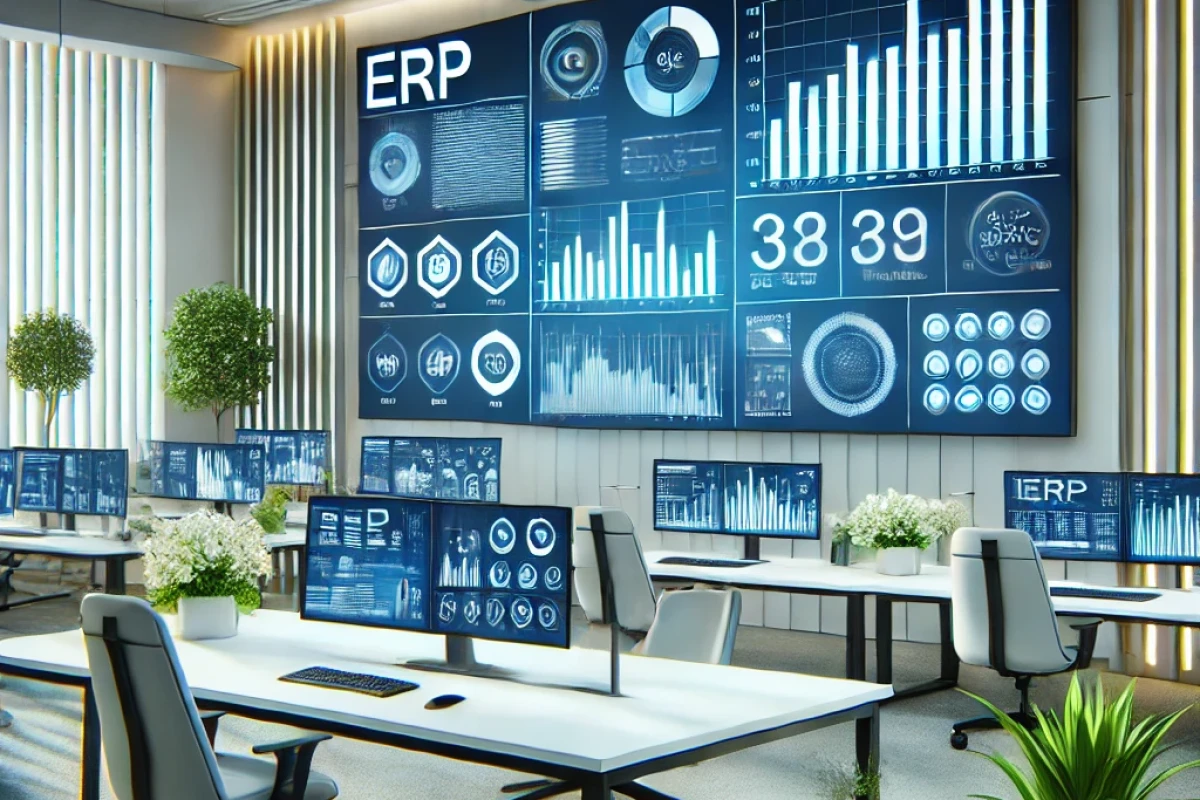
ERP as a Tool for Reporting and Analytics
In today's business world, where information is the new oil, ERP (Enterprise Resource Planning) systems are becoming the true "data extractors" for companies. They allow businesses to not only gather information from all departments but also transform this data into a powerful analytical tool that helps make well-informed, strategic decisions. Let’s take a look at how ERP helps create detailed reports and conduct deep data analysis, keeping businesses on top in a rapidly changing market.
ERP: Data at Your Fingertips
ERP systems are like "Mission Control Centers" for businesses. They gather data from every part of your enterprise—from the warehouse to accounting, from HR to marketing. Imagine all this data in one system, where it can be monitored and analyzed in real time.
Reports That Open Eyes: How ERP Simplifies Reporting
Modern ERP systems provide the ability to customize a wide variety of report types to meet diverse needs. ERP can be used to create standard reports that show the current state of the business as well as detailed reports that answer the "Why?" question. For example:
- Financial Reports: ERP provides up-to-date financial metrics such as revenue, expenses, and profitability, enabling executives to make well-informed financial decisions.
- Sales Analytics: ERP enables tracking of sales by region, product, and period, helping marketers optimize campaigns and sales strategies.
- Operational Efficiency: With ERP data, you can see where most resources are spent and where there is potential for optimization.
Of course, creating reports requires not just clicking a few buttons but also understanding which data is needed for specific business decisions. However, ERP systems make this process simpler and clearer, even for those who don’t love charts.
Analytics That Change the Game
In an era where decisions based on intuition can be too costly, ERP enables executives to use precise data. For example, with ERP, you can track how sales have changed over a given period, which products are in high demand, and in which regions. This information allows companies to respond flexibly to market trends and make decisions that can save significant resources.
Quick Access to Key Metrics
Another advantage of ERP is the ability to create dashboards that consolidate the most important metrics for various management levels. There’s no need to spend hours poring over hundreds of spreadsheets to find out if it’s worth increasing production volumes. Instead—a few clicks, and you have all the information on your computer or even smartphone screen.
From Theory to Practice: How ERP Helps with Strategic Decisions
Modern ERP systems can not only display current data but also predict trends. For instance, with forecasting functions based on past indicators, companies can plan purchases, predict expenses, and even develop the budget for the following year. Rather than guessing, you’ll have a clear forecast based on real data.
A Bit of Humor: An ERP system will never say it was late for work or forgot an important report. It is always ready to help you make decisions by providing all necessary data. Think of it as an “assistant” who, unlike us humans, doesn’t suffer from a morning coffee crisis.
Conclusion
ERP systems turn business data into comprehensible information that aids in making important managerial decisions. They offer tools for analysis, visualization, and forecasting, making them indispensable in today’s business environment. So, if you’re still considering whether to invest in ERP, remember: this is an investment not only in data but also in your ability to manage the business intelligently.
May your business grow as quickly as your new ERP runs!

